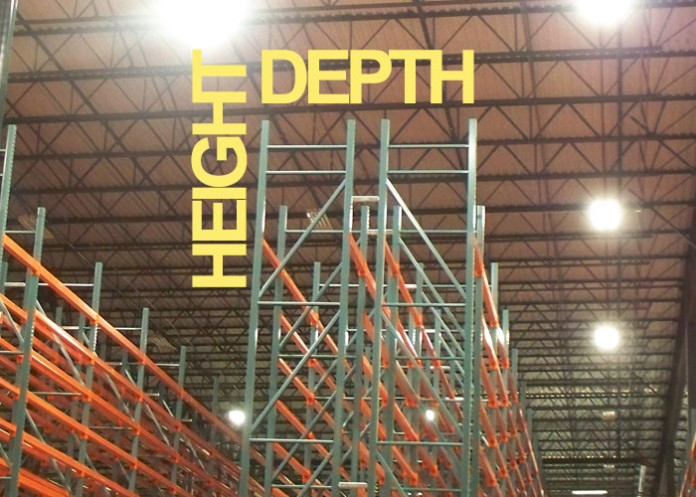As a pallet rack manufacturer, we are constantly asked to design rack systems of every magnitude. We have a large number of people who send in orders which would seemingly not require any engineering. However, there is one simple design principle that rack purchasers often overlook. Probably the easiest principle of pallet rack design in a complicated world of equations spanning from Phi and Lx is the height to depth ratio rule. The RMI defines the height to depth ratio for a single row of pallet rack to be “the ratio of the distance from the floor to the top beam level divided by the depth of the frame.” For the junior rack engineers out there, this simply means that a 24” deep upright should not have a top beam level higher than 144” (six times the depth). This easy fifth grade ratio computation is a welcome and simple approach to keep pallet rack from toppling over but is not as publicized as it should be.

However as with any engineering formula… there are exceptions. One exception to this rule that is often overlooked is when the pallet racks are placed outdoors they should also be analyzed for wind. When large pallets are placed on outdoor rack they have a considerable amount of surface area and should always be designed for wind forces. The racks should also be checked for wind overturning and wind shear. Large, light pallets do not restrain the rack from overturning and they catch a lot of wind. Pallet rack should be analyzed for loaded and unloaded conditions.
good point
How about a formula for beam to upright ratio? 🙂
Hi,
I suppose these engineering ratios should be kept in mind for effective and efficient storage of materials also with optimum utilization of resources and space in a warehouse.
……
Need cheap generic LEVITRA?…